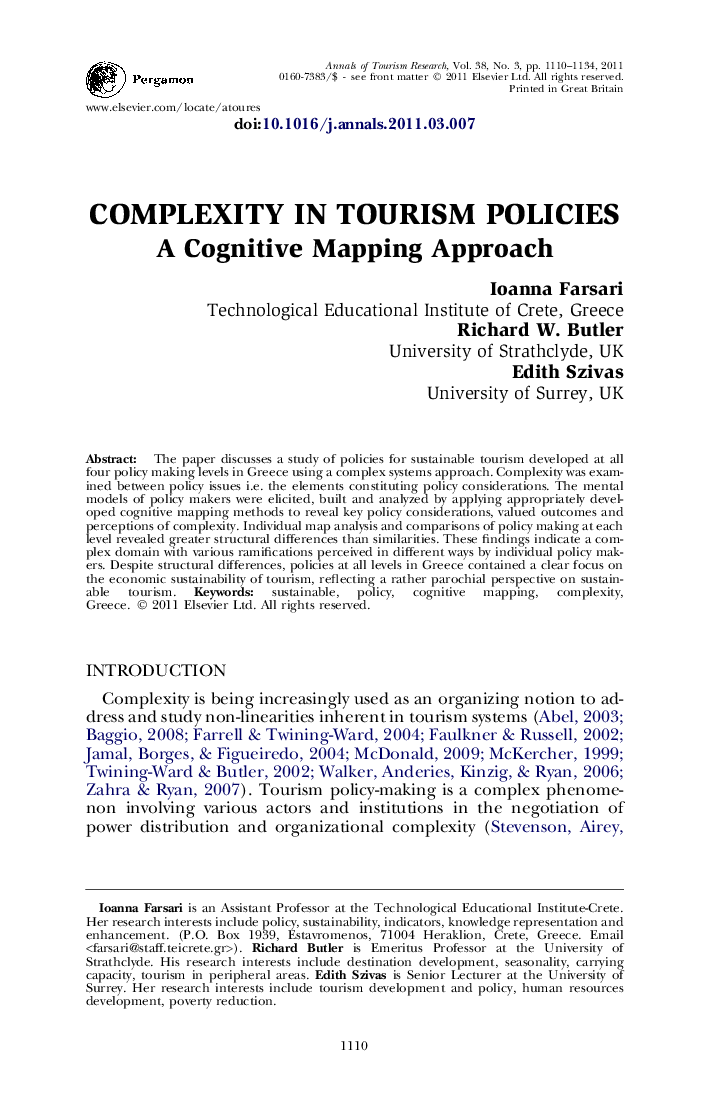| کد مقاله | کد نشریه | سال انتشار | مقاله انگلیسی | نسخه تمام متن |
|---|---|---|---|---|
| 1007699 | 1482262 | 2011 | 25 صفحه PDF | دانلود رایگان |

The paper discusses a study of policies for sustainable tourism developed at all four policy making levels in Greece using a complex systems approach. Complexity was examined between policy issues i.e. the elements constituting policy considerations. The mental models of policy makers were elicited, built and analyzed by applying appropriately developed cognitive mapping methods to reveal key policy considerations, valued outcomes and perceptions of complexity. Individual map analysis and comparisons of policy making at each level revealed greater structural differences than similarities. These findings indicate a complex domain with various ramifications perceived in different ways by individual policy makers. Despite structural differences, policies at all levels in Greece contained a clear focus on the economic sustainability of tourism, reflecting a rather parochial perspective on sustainable tourism.
► We examined complexity in policy issues rather than actors’ networks.
► Properties of complex systems are indeed apparent in sustainable tourism policies.
► Sustainable tourism policies are perceived differently by individual policy makers.
► Cognitive mapping proved useful in examining properties of complexity in policies.
► Policies in Greece had a clear focus on the economic sustainability of tourism.
Journal: Annals of Tourism Research - Volume 38, Issue 3, July 2011, Pages 1110–1134